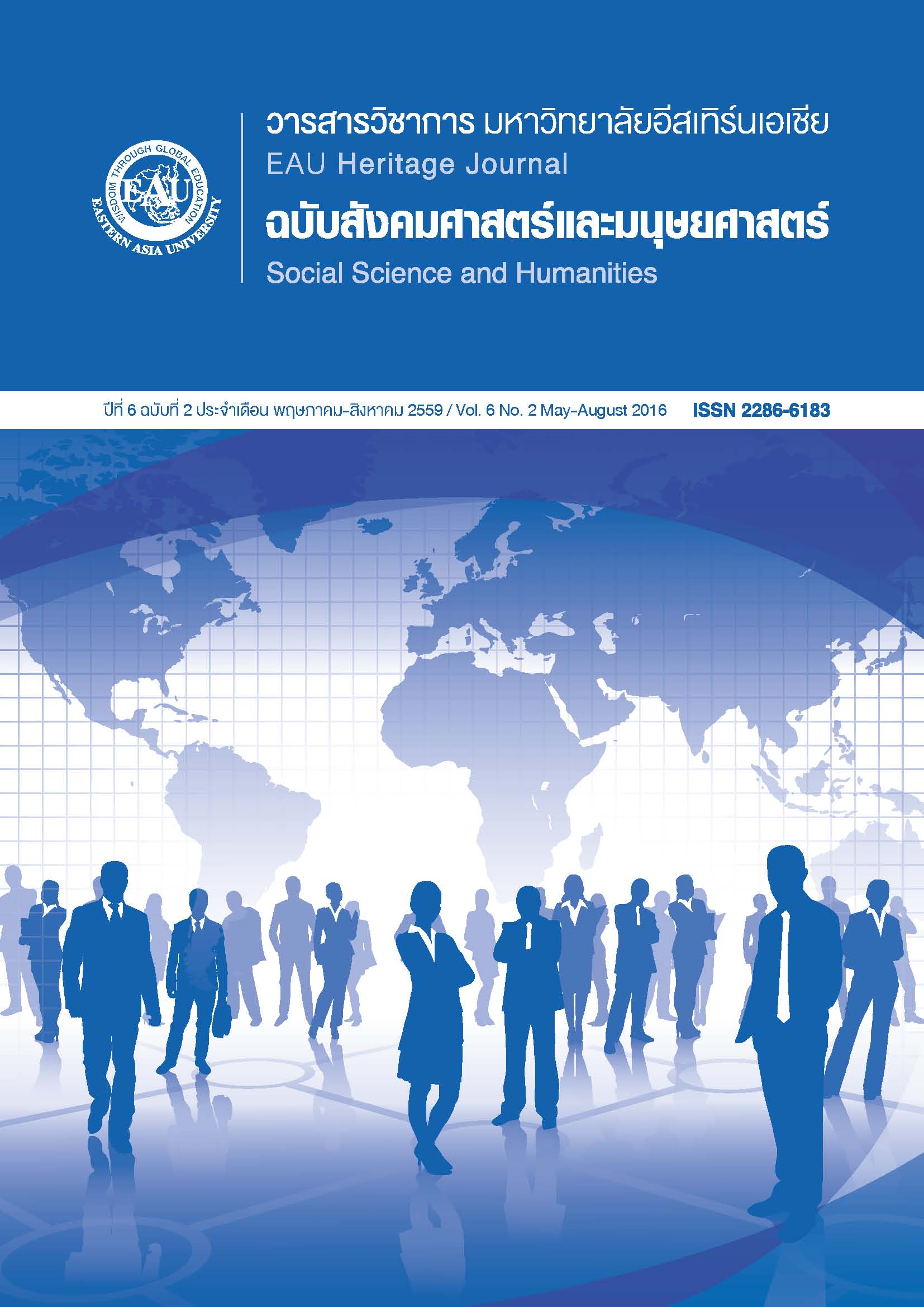รูปแบบการพัฒนาภาวะผู้นำแบบเปลี่ยนแปลงที่มีประสิทธิภาพ ในการบริหารกิจการคณะสงฆ์ของเจ้าคณะจังหวัด The Development of an Effective Transformational Model in the Sangha Affairs Administration Undertaken by the Provisional Government of Monks
Keywords:
ภาวะผู้นำ, การบริหารกิจการคณะสงฆ์, เจ้าคณะจังหวัดAbstract
การวิจัยครั้งนี้ เป็นการวิจัยเชิงผสมผสาน งานวิจัยมีวัตถุประสงค์เพื่อ (1) ศึกษาองค์ประกอบภาวะผู้นำ (2) สร้างรูปแบบการพัฒนาภาวะผู้นำและ (3) ประเมินความเหมาะสมและความเป็นไปได้ของรูปแบบการพัฒนาภาวะผู้นำแบบเปลี่ยนแปลงที่มีประสิทธิภาพในการบริหารกิจการคณะสงฆ์ของเจ้าคณะจังหวัด ประชากร ได้แก่ พระสังฆา ธิการที่ดำรงตำแหน่งปกครองคณะสงฆ์ในระดับเจ้าคณะจังหวัด รองเจ้าคณะจังหวัด เจ้าคณะอำเภอ รองเจ้าคณะอำเภอ เจ้าคณะตำบล รองเจ้าคณะตำบล เจ้าอาวาส รองเจ้าอาวาส ผู้ช่วยเจ้าอาวาส รวม 37,760 รูป การกำหนดขนาดกลุ่มตัวอย่างโดยใช้ตารางของ Krejcie and Morgan ได้กลุ่มตัวอย่าง จำนวน 380 รูป ใช้วิธีการสุ่มตัวอย่างอาศัยหลักความน่าจะเป็น ใช้การสุ่มแบบแบ่งชั้น และวิธีสุ่มตัวอย่างแบบง่าย สถิติที่ใช้ในการวิเคราะห์ ได้แก่ ความถี่ ร้อยละ ค่าเฉลี่ย และค่าเบี่ยงเบนมาตรฐาน ผลการวิจัย พบว่า (1) ผลการศึกษา ภาพรวมมี ความคิดเห็นอยู่ในระดับมาก (2) รูปแบบการพัฒนาภาวะผู้นำแบบเปลี่ยนแปลงที่มีประสิทธิภาพในการบริหารกิจการคณะสงฆ์ของเจ้าคณะจังหวัด ประกอบด้วย ตัวป้อน กระบวนการ และข้อมูลป้อนกลับ (3) ผลประเมินความเหมาะสมและความเป็นไปได้ของรูปแบบการพัฒนาภาวะผู้นำแบบเปลี่ยนแปลงที่มีประสิทธิภาพในการบริหารกิจการคณะสงฆ์ของเจ้าคณะจังหวัด พบว่า ภาพรวมอยู่ในระดับมากที่สุดทุกด้าน
References
Bass, B. M. (1985). Does the transactional formational leadership paradigm transcend organic
rational and national boundries. Amarican Peychologist, 52(2).
Bass, B. M. & Avolio. (1994). Improving organization effectiveness through transformation leadership.
Thousand Oaks Oars: Sage.
Binchai, P. & Kinawong, N. (2004). Leadership development model based on the complete range of
Leadership of school administrators in basic education. Faculty in Education University. (in Thai)
Boonmee, T. (1998) . National Good governance. Thailand 's disaster strategy. Bangkok: Saitan. (in Thai)
Burns, J. M. (1978). Leadership. New York: Harper & Row.
Datchaisri, A. (1999). Curriculum development, training, leadership, quality of management schools. Bangkok:
Prannok karnpim.. (in Thai)
Fairholm, G. W. (1991). Values leadership: Toward a new philosophy of leadership. New York: Praeger.
Fairholm, G. W. (1994). Leadership and the culture of trust. New York: Praeger.
Fairholm, G. W. (1995). Values leadership: A values philosophy model. Industrial Journal of Value–
Based Management, 12, 65-67.
Kouzes, J. M., & Posner, B. Z. (1989). The leadership challenge. California: Jossey-Bass.
Mashall, & Molly G., Sashkin. (2003). Leadership that matter: The critical factors for making a difference in people’s lives and organizational , s success. San Francisco: Berrtt Koehler.
Pandang, W. (2010). Leadership and good governance principles that influence the effectiveness. Doctoral’s
dissertation in Education, Western Asia University. (in Thai)
Pannita mai, W. (2004). The development of organizational learning. Bangkok: Prannok. (in Thai)
Pratamgosajan (Prayoon Thammajitto). (2005). Educational administration. Bangkok: MahaChulalongkorn
College. (in Thai)
Pra Mahatammarat Ariyatammo. (2000). The education of the clergy in the context of Thailand Thailand 's
society. Today. Doctoral dissertation in Buddhist, Mahamakutrajawittayalai College. (in Thai)
Pramateetamaporn (Prayoon Thammajitto). (1996). Regulations governing ecclesiastical Thailand. Bangkok:
Shtrrmik. (in Thai)
PraPaisan Wisalo. (1999). Dhammapitaka the future of buddhism. Bangkok: Tammasarn. (in Thai)
The Dhammapitaka. (1998). Buddhist Law. Bangkok: Buddhist Foundation. (in Thai)





